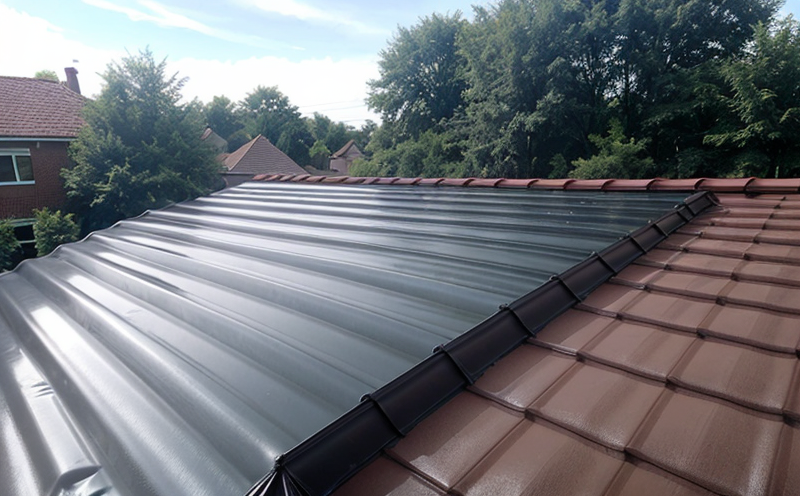ISO 37 Mechanical Properties of Rubber Membranes
The ISO 37 standard is designed to measure the mechanical properties of rubber membranes that are commonly used in roofing and waterproofing applications. This service ensures compliance with international standards, providing accurate and reliable data on tensile strength, elongation at break, tear resistance, and other critical mechanical parameters.
Understanding these properties is essential for quality managers, compliance officers, R&D engineers, and procurement professionals who need to ensure the integrity and performance of rubber membranes in building and infrastructure projects. The testing process involves precise specimen preparation and measurement using specialized equipment that adheres strictly to ISO 37 guidelines.
The mechanical properties tested under this standard are crucial for determining the durability and reliability of rubber membranes, which are often exposed to harsh environmental conditions such as UV radiation, moisture, and temperature fluctuations. This service supports sustainable construction practices by ensuring materials meet stringent quality standards before they are used in critical infrastructure projects.
Testing according to ISO 37 helps manufacturers and suppliers demonstrate compliance with industry regulations and can be a key differentiator in the market. By offering this testing service, we empower our clients to make informed decisions about material selection based on scientifically validated data.
The process involves cutting specimens from the membrane according to specified dimensions and then subjecting them to tensile testing to determine their breaking strength and elongation at break. Tear resistance tests are conducted using a specific method that simulates real-world stress conditions. These tests provide insights into how well the material can withstand tearing forces, which is particularly important for waterproofing membranes.
The results of these mechanical property tests play a vital role in quality control and product development. They help identify any potential weaknesses or areas for improvement in the materials used. For instance, if a membrane has poor elongation at break, it may not be suitable for large roofing projects where flexibility is required to accommodate thermal expansion.
In addition to these mechanical tests, we also offer other related services such as aging studies and hydrostatic testing that can further enhance the understanding of how rubber membranes perform under various conditions. These additional tests provide valuable data beyond just the mechanical properties, helping our clients make well-informed decisions about their materials.
By leveraging ISO 37 Mechanical Properties of Rubber Membranes testing services, you gain a comprehensive view of your materials' performance characteristics. This knowledge allows for better decision-making during procurement and product development phases, ultimately leading to higher quality products and more reliable infrastructure projects.
Industry Applications
| Application Area | Description |
|---|---|
| Roofing Systems | Testing rubber membranes for durability and integrity in roofing applications. |
| Waterproofing Membranes | Evaluating the performance of waterproofing membranes used in construction projects. |
| Sustainable Construction Practices | Ensuring compliance with international standards to promote sustainable building practices. |
Eurolab Advantages
- Comprehensive Testing Capabilities: Eurolab offers a wide range of testing services tailored to the specific needs of the building and infrastructure sector.
- State-of-the-Art Equipment: Our laboratory is equipped with the latest technology, ensuring accurate and reliable test results.
- Experienced Technicians: Our team of experts has extensive experience in conducting mechanical property tests according to ISO 37 standards.
- Comprehensive Reporting: We provide detailed reports that include all relevant data points from each test conducted.
Competitive Advantage and Market Impact
- Enhanced Reputation: Demonstrating compliance with ISO standards can significantly enhance your company's reputation in the market.
- Better Decision-Making: Accurate data from mechanical property tests helps make more informed decisions about material selection.
- Innovation Support: Understanding material performance through testing fosters innovation and continuous improvement within your organization.





